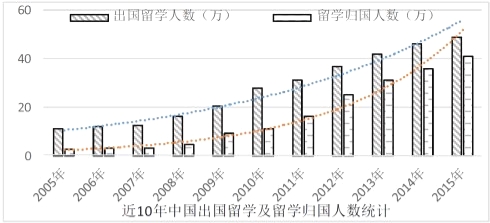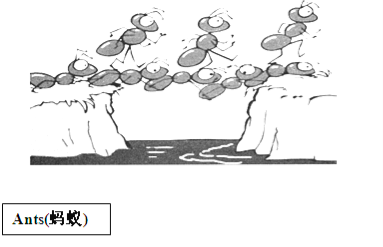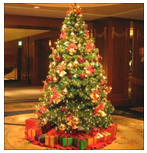ĢāÄæÄŚČŻ
”¾ĢāÄæ”æŌĶĮĻĀĆęĪÄ×Ö£¬Ķź³Éø÷Ģā”£
²ÄĮĻŅ»
Ō²ĆĪÕżµ±Ź±£¬ÖŠ¹śĆĪ¼¤µ“×ī“ó”°ŗ£¹é³±”±
ÓÅ»ŻµÄÕžø®Õž²ß”¢Č«Ēņ×ī»īŌ¾µÄ¾¼Ć”¢æģĖŁ·¢Õ¹µÄøߊĀ²śŅµ”¢³ÖŠųĶ¶ČėµÄæĘ½ĢŹĀŅµ”¢ÅØŗńµÄ““ŠĀ““Ņµ·ÕĪ§ŅŌ¼°ŗ£ÄŚĶā”°ČĖ²Å”¢ĻīÄ攢¼¼Źõ”¢ŹŠ³””¢×Ź±¾”¢³”µŲ”¢·žĪń”±Č«Ćę¶Ō½ÓµÄĘ½ĢØ£¬ÕżĪüŅżŌ½Ą“Ō½¶ąŗ£Ķāѧ×Ó¹é¹ś×·ĆĪ”£
¹śĶāĆ½ĢåĘĄ¼Ū£¬Č«ĒņƻӊÄÄøö¹ś¼ŅĻńÖŠ¹śÕāŃłÖŲŹÓ”¢ÕāŃł“ó¹ęÄ£”¢ÕāŃł×ØŅµ»ÆµŲĪüŅżČĖ²Å»Ų¹ś”£
”°ĻÖŌŚ£¬ŗ£¹é»Ų¹śÖ÷ŅŖŹĒ±»”®Īü”Æ»ŲĄ“µÄ”£”±ÖŠ¹śÅ·ĆĄĶ¬Ń§»įø±»į³¤Ķõ»ŌŅ«Ėµ£¬Ėę×Å×ŪŗĻ¹śĮ¦²»¶ĻĢįÉż£¬ÖŠ¹ś±ČĄśŹ·ÉĻČĪŗĪŹ±ĘŚ¶¼øü¼Óææ½üŹĄ½ēĪčĢØÖŠŠÄ£¬Ņ²±ČŅŌĶłČĪŗĪŹ±ĘŚøüÓŠĢõ¼ž”¢øüÓŠÄÜĮ¦ĪüŅżČ«ĒņČĖ²Å”£
Õ²ĢģÓÓ”¢Ć©ŅŌÉż”¢Ē®Ń§É”¢µĖ¼ŚĻČ””ׯ¹ŪĄśŹ·£¬Ņ»ÅśÓÖŅ»ÅśŻ·Ż·Ń§×Óø°ĶāĒóѧ”¢¹é¹śŠĖ°ī”£
½ńĢģ£¬³żĮĖÓµÓŠĒ°±²ĆĒµÄ°®¹śÖ®Ē锢Ēæ¹śÖ®Ö¾”¢±Ø¹śÖ®ŠŠ£¬ĪüŅż“óĮæŗ£¹éČĖ²Å¹éĄ“µÄ£¬»¹°üĄØ×ŌĪŅ¼ŪÖµÓėøöČĖĆĪĻėµÄŹµĻÖ”£
Č»¶ų£¬ŌŚČ«Ēņ¾ŗÕłÖŠ·¢Õ¹³ÉŅ»øöČĖ²Å“ó¹ś”¢ČĖ²ÅĒæ¹ś£¬ČŌŠčĻĀøü“ó¾öŠÄ”¢øü“óĮ¦Ęų”£Ņ»·ŻĆęĻņČ«¹ś200¶ąĖłøߊ£µÄĪŹ¾ķµ÷²éĻŌŹ¾£¬”°±ąÖĘ¹żĖĄ”¢±ąÖĘĘ«½ō”±ŹĒČĖ²Å¹ÜĄķÖŠĆęĮŁµÄ×īĶ»³öĪŹĢā”£“ÓČĖ²Å·¢Õ¹ÉĻæ“£¬¾¹ż¶ąÄźÅ¬Į¦£¬ĪŅ¹śČĖ²Å¶ÓĪé½ØÉčČ”µĆ¾Ž“ó³É¾Ķ£¬µ«»¹“ęŌŚĢåÖĘ²»Ė³”¢»śÖĘ²»»ī”¢²¼¾Ö²»ÓÅ”¢Š§ĀŹ²»øߵȥ§¾³£¬ĘĘ½āÕāŠ©”°Ęæ¾±”±£¬ĪØÓŠ¼į¶Ø²»ŅʵŲÉī»ÆøÄøļ”£
£ØŃ”×Ō2ŌĀ22ČÕ”¶ČĖĆńČձؔ·£¬ÓŠÉ¾øÄ£©
ø½Ķ¼£ŗ

²ÄĮĻ¶ž
ŠĀ¶«·½ŗ£ĶžŹ±“śÓėČ«Ēņ»ÆÖĒæā£ØCCG£©¹²Ķ¬·¢²¼ĮĖ”¶2016ÄźÖŠ¹śŗ£¹é¾ĶŅµµ÷²é±Øøę”·”£”¶±Øøę”·ĻŌŹ¾£¬Įł³ÉĘóŅµŌŚÕŠĘøŹ±ČŌøüĒćĻņÓŚŹ¹ÓĆŗ£¹éČĖ²Å£¬¶ų82.5%µÄµ„Ī»¾łŌŚŅ»¶Ø³Ģ¶ČÉĻ¶Ōŗ£¹éŌ±¹¤²ÉČ”ĮĖĒ抱ŠŌÓÅ“ż£ØČēøüŗĖŠÄµÄøŚĪ»£¬½ĻøßĘšŠ½µČ£©”£
¶ų»śÓöÓėĢōÕ½²¢“ęµÄŹĒ£¬Éķ“¦ŗ£ĶāµÄĮōѧɜŌŚ»Ų¹é±¾ĶĮÖ°³”µÄ¹ż³ĢÖŠŅ²ŌāÓöĮĖŠ©Šķ²»ĄūŅņĖŲ”£”¶±Øøę”·½į¹ūĻŌŹ¾£¬¶ąŹżĘóŅµµÄÕŠĘøøŚĪ»ŹżĮ棬ՊĘøŹ±¼ä£¬ÕŠĘøĒžµĄ¶Ōŗ£¹éĒóÖ°½ĻĪŖ²»Ąū”£Ķ¬Ź±£¬ŗ£¹éČĖ²ÅŌŚĒóÖ°¹ż³ĢÖŠŅ²±©Ā¶³ö¶Ō¹śÄŚ¾ĶŅµŠĪŹĘ²»ĮĖ½ā£¬“ķ¹żĘóŅµÕŠĘø¼¾ŅŌ¼°Č±·¦Ć÷Č·Ö°Ņµ¹ę»®µČĪŹĢā”£³¬¹ż50%µÄŗ£¹éČĻĪŖ²»ĮĖ½ā¹śÄŚ¾ĶŅµŠĪŹĘŗĶĘóŅµŠčĒóŹĒ»Ų¹ś¾ĶŅµµÄµŚŅ»²»ĄūŅņĖŲ£¬Ķ¬Ź±47.3%ŗĶ32.4%µÄŹÜ·ĆČĖŌ±ČĻĪŖ»Ų¹śŹ±¼ä“ķ¹żŠ£ÕŠ¼¾ŅŌ¼°øŚĪ»ŗ£Ķ¶Š§ĀŹµĶÕāĮ½“óŅņĖŲµ¼ÖĀĮĖŗ£¹é»Ų¹ś¾ĶŅµÄѶČŌö“ó”£
£ØÕŖ×ŌÖŠ¹śŠĀĪÅĶų£¬ÓŠÉ¾øÄ£©
²ÄĮĻČż
ČÕĒ°£¬ŃīÕńÄž”¢Ņ¦ĘŚÖĒĮ½Ī»ĄĻæĘѧ¼Ņ·ÅĘśĶā¹ś¹ś¼®”¢×ŖĪŖÖŠæĘŌŗŌŗŹæŅ»ŹĀ£¬Ņż·¢ČČĮŅ¹Ų×¢”£
ŌŚÓßĀŪ³”ÉĻ£¬ŅŌė£ńóÖ®Įä»Ų¹é¹ŹĶĮµÄŃīÕńÄžøüŹĒ±øŹÜ¹Ų×¢”£ŅŃ½ü°ŁĖźÖ®ĮäµÄŃīÕńÄž£¬¹Ą¼ĘŅŃ²»»įČēÄźĒįŹ±ÄĒ°ćĀńĶ·ŌśøłÓŚæĘŃŠŅ»Ļߣ¬»ņŠķÕżČēĖū±¾ČĖĖłŹö£¬”°ĪŅµÄÉķĢåĄļŃ»·×ÅµÄŹĒøøĒ×µÄŃŖŅŗ£¬ŹĒÖŠ»ŖĪĻƵÄŃŖŅŗ”±£¬ŹĒĪĻƵĹéŹōøŠČĆĖū¶Ō¹ŹĶĮĮµĮµ²»Éį”£Ņą»ņŹĒæĘѧÉĻµÄŅżĀ·¾«ÉńČĆĖū»ŲĄ“·¢»Ó”°ÓąČČ”±£¬ĪŖŗóĄ“ÕßÖøŅżĒ°Ā·£¬ČēĖū×Ō¼ŗŌŚŹ«ÖŠĖłĖµ£ŗ”°Ń§×ÓĮčŌĘÖ¾£¬ĪŅµ±ÖøĀ·ĖÉ”£”±
ŃīÕńĞєŌńČė¼®£¬ŹĒĖū¶ŌĶķÄźµĄĀ·µÄŃ”Ōń£¬“ÓijÖÖ³Ģ¶ČÉĻĖµ£¬ÕāÓė¹ś¼ŅµÄµĄĀ·Ń”ŌńŹĒ½»²ęµÄ”£µĆŅęÓŚøÄøļæŖ·ÅČżŹ®¶ąÄźĄ“Ėł““ŌģµÄæŖ·Å»·¾³£¬¶ŌŹĄ½ē³±Į÷µÄČŚČė£¬ŃīÕńÄžµÄ¹éĄ“·½²ÅÓŠĮĖĻÖŹµµÄæÉÄÜ£»¶ųŃīÕńÄžµČŅ»Åśŗ£ĶāæĘѧ¼ŅµÄ¹éĄ“£¬ÓÖ»įøųÖŠ¹śæĘŃŠ“ųĄ““ÓĻīÄæµ½½ØÖĘÓėŹĄ½ē½Ó¹ģµÄ»ś»į”£
¶ŌÓŚÖŠ¹śĄ“Ėµ£¬ÓĄ“ŃīÕńĞɣÓÜĶķÄźµÄĶ¬Ź±£¬Ņ²²»æÉ·ńČĻ£¬“ķ¹żĮĖŃīÕńÄž×ī»Ō»ĶµÄæĘŃŠÉśŃÄ”£ÓÉ“Ė£¬Ī“Ą“µÄ·½ĻņŅ²µ±ŅņÖ®ĄåĒå£ŗČĆøü¶ąæĘѧ¼ŅĆĒŌøŅāĮōŌŚÕāʬĶĮµŲÉĻ£¬µ®Éś³ö×ī¾«¼āµÄæĘŃŠ³É¹ū£¬²»½öŹĒŅņĪŖÖŠ»ŖĪĻƵÄŃŖŅŗ£¬øüŅņĪŖŹĒĻČ½ųµÄÉč±ø”¢ÓÅŗńµÄĢõ¼ž”¢Éē»įµÄĄķÖĒÓėךÖŲ”¢»·¾³µÄĘ½ŗĶÓė°üČŻ”£
£ØĄ“×Ō¹āĆ÷Ķų£¬×÷Õß”°¹āĆ÷ĶųĘĄĀŪŌ±”±£¬ÓŠÉ¾øÄ£©
”¾1”æĻĀĮŠÕė¶ŌÉĻĖß²ÄĮĻµÄĄķ½ā×¼Č·µÄŅ»ĻīŹĒ£Ø £©
A£®ČżŌņ²ÄĮĻ¶¼ČĻĪŖŌŚµ±ĻĀĪŅ¹śµÄ”°ŗ£¹é”±ČČ³±ÖŠ£¬Ņ»·½Ćęŗ£ĶāĮōѧČĖŌ±Ó»Ō¾»Ų¹é×ę¹ś£¬ĮķŅ»·½ĆęŌŚČĖ²Å»Ų¹śµÄ¹ż³ĢÖŠ»¹“ęŌŚ×ÅŅ»Š©Ų½“ż½ā¾öµÄĪŹĢā”£
B£®µŚŅ»Ōņ²ÄĮĻŹĒŅ»ĘŖŠĀĪűصĄ£¬æĶ¹ŪµŲ½éÉÜĮĖŗ£ĶāĮōѧČĖ²ÅĪŖŹµĻÖ×ŌĪŅ¼ŪÖµŗĶøöČĖĆĪĻė£¬»ż¼«»Ų¹ś““Ņµ£¬ŹĶ·Å³ö¾Ž“óµÄ·¢Õ¹ÄÜĮ攣
C£®µŚ¶žŌņ²ÄĮĻŹĒµ÷²é±Øøę£¬·“Ó³ĮĖŗ£¹éČĖ²ÅŌŚ»Ų¹śĒóÖ°¾ĶŅµ¹ż³ĢÖŠÓöµ½µÄ²»ĄūŅņĖŲ£¬ĪŖĖūĆĒŌŚ¹śÄŚµÄÖ°Ņµ·¢Õ¹Ģį³ö½ØŅ锢ÖøĆ÷·½Ļņ”£
D£®µŚČżŌņ²ÄĮĻŹĒŠĀĪÅĘĄĀŪ£¬øĆĘĄĀŪČĻĪŖŃīÕńÄž»Ų¹éÖŠ¹ś¹ś¼®ÕāŅ»ŹĀ¼žÕĆĻŌÖŠ¹śøÄøļæŖ·ÅµÄ¾Ž“ó³É¾Ķ£¬øüĢåĻÖĮĖÖŠ»ŖĪĻƵÄĪüŅżĮ¦”£
”¾2”æĻĀĮŠÕė¶ŌÉĻŹö²ÄĮĻ·ÖĪöŗĻĄķµÄĮ½ĻīŹĒ£Ø £©
A£®ĪŅ¹ś³ö¹śĮōѧ¼°Įōѧ¹é¹śČĖŹżÖšÄźŌö¼Ó£¬³ö¹śČĖŹżŗĶ»Ų¹śČĖŹżÖ®¼äµÄ²ī¾ąÖšÄźĖõŠ””£æÉŅŌŌ¤¼ū£¬ŌŚĪ“Ą“¼øÄź£¬ÕāŃłµÄ·¢Õ¹Ē÷ŹĘ½«³ÖŠųĻĀČ„”£
B£®ŌŚĪüŹÕŗ£¹éČĖ²ÅµÄ¹ż³ĢÖŠ³öĻÖµÄĪŹĢā£¬¶¼Ō“×ŌĪŅĆĒŌŚČĖ²Å¹ÜĄķÖŠ”°±ąÖĘ¹żĖĄ£¬±ąÖĘĘ«½ō”±µÄĢåÖĘ£¬ÕāŠ©ĪŹĢāµÄ½ā¾öŠčŅŖ¼į¶Ø²»ŅʵÄÉī»ÆøÄøļ”£
C£®ŗ£ĶāæĘ¼¼ČĖ²ÅµÄ“óĮæ»Ų¹é£¬ÓŠÖśÓŚĪŅĆĒѧĻ°½č¼ųŹĄ½ēø÷¹śµÄÓÅŠćæĘ¼¼³É¹ū£¬ÓŠÖśÓŚÖŠ¹śæĘŃŠ“ÓĻīÄæµ½½ØÖĘÓė¹ś¼Ź½Ó¹ģ”£
D£®ŃīÕńÄž”¢Ņ¦ĘŚÖĒĮ½Ī»ĄĻæĘѧ¼ŅŌŚė£ńóÖ®Įä×ŖĪŖÖŠ¹ś¹«Ćń£¬ĖäČ»ŅŃ¾²»ÄÜŌŚæĘŃŠÉĻĪŖ×ę¹ś×ö³ö¹±Ļ×£¬µ«ĖūĆĒĪŖøü¶ąµÄŗ£Ķā¾«Ó¢×ö³öĮĖ»ż¼«Ź¾·¶”£
E£®µ±Ē°£¬ĪŽĀŪŹĒ»Ų¹ś““Ņµ»¹ŹĒČėÖ°¹śÄŚĘóŅµ£¬ŗ£¹éČĖ²Å¶¼ÄÜÕŅµ½ŹŹŗĻ×Ō¼ŗ·¢»ÓµÄĮģÓņ£¬æÉŅŌŗÜŗƵİŃøöČĖµÄĆĪĻėŗĶ¹ś¼ŅµÄ·¢Õ¹½ōĆÜĮŖĻµĘšĄ“”£
”¾3”æĒė×ŪŗĻČżŌņ²ÄĮĻ¹éÄÉĪŅ¹śµ±Ē°³öĻÖ”°ŗ£¹é”±ČČ³±µÄÖ÷ŅŖŌŅņ”£
“š£ŗ
”¾“š°ø”æ
”¾1”æC
”¾2”æAC
”¾3”æ¢Ł¹ś¼ŅÕž²ßŅżµ¼·ö³Öŗ£ĶāČĖ²Å»Ų¹ś““Ņµ”£¢ŚÖŠ¹ś¹ś¼ŅŹµĮ¦µÄŌöĒ棬ÓėŹĄ½ē³±Į÷½Ó¹ģµÄĒæĮŅŌøĶū”£¢ąĻČ½ųµÄÉč±ø”¢ÓÅŗńµÄĢõ¼ž”¢Éē»įµÄĄķÖĒÓėךÖŲ”¢»·¾³µÄĘ½ŗĶÓė°üČŻ“Ó¶ųŅņŌģ³öµÄÅØŗńµÄ““ŠĀ““Ņµ·ÕĪ§”£¢Üŗ£ĶāČĖ²ÅµÄ°®¹śÖ®Ē锢Ēæ¹śÖ®Ö¾”¢±Ø¹śÖ®ŠŠ”£¢ŻĪŖĮĖŹµĻÖ×ŌĪŅ¼ŪÖµÓėøöČĖĆĪĻė”£
”¾½āĪö”æ
”¾1”æAĻī£¬µŚČżŌņ²ÄĮĻƻӊÖø³ö”°ŗ£¹é”±¹ż³ĢÖŠ“ęŌŚµÄĪŹĢā£»BĻī£¬”°ŗ£¹é”±»Ų¹ś²¢·ĒÖ»ĪŖĮĖ”°ŹµĻÖ×ŌĪŅ¼ŪÖµŗĶøöČĖĆĪĻė”±£¬¶ųĒŅ»¹»³“§”°°®¹śÖ®Ē锢Ēæ¹śÖ®Ö¾”¢±Ø¹śÖ®ŠŠ”±”£DĻī£¬²»ŹĒĢåĻÖĪÄ»ÆĪüŅżĮ¦£¬¶ųŹĒĢåĻÖĪĻƹéŹōøŠ”£
”¾2”æBĻī£¬ĪüŹÕŗ£ĶāČĖ²Å¹ż³ĢÖŠµÄĪŹĢāŅ²ÓŠĮōѧɜ×Ō¼ŗ¶Ō¹śÄŚŠĪŹĘ²»ĮĖ½āµČŌŅņ£»DĻī£¬ĄĻæĘѧŌŚæĘŃŠÉĻ»¹æÉŅŌĘšŅżĮģŗĶŹ¾·¶µÄ×÷ÓĆ£»EĻī£¬²¢·ĒĖłÓŠµÄŗ£¹éČĖ²Å¶¼ÄÜÕŅµ½ŹŹŗĻ×Ō¼ŗ·¢»ÓµÄĮģÓņ”£
”¾3”æ”°ŗ£¹é”±ČČ³±²śÉśµÄŌŅņĪŽ·ĒÓŠĶāŅņŗĶÄŚŅņ£ØøöČĖŌŅņ£©£¬ĶāŅņ°üĄØ¹ś¼Ņ²ćĆę£ØÕž²ß”¢¹ś¼ŅŹµĮ¦”¢¾ĶŅµ»·¾³µČ£©ÓĆČĖµ„Ī»²ćĆę£ØĻČ½ųµÄÉč±ø”¢ÓÅŗńµÄĢõ¼žµČ£©£¬ÄŚŅņ°üĄØøöČĖµÄĄķĻė”¢¼ŪÖµ¹ŪµČ”£











